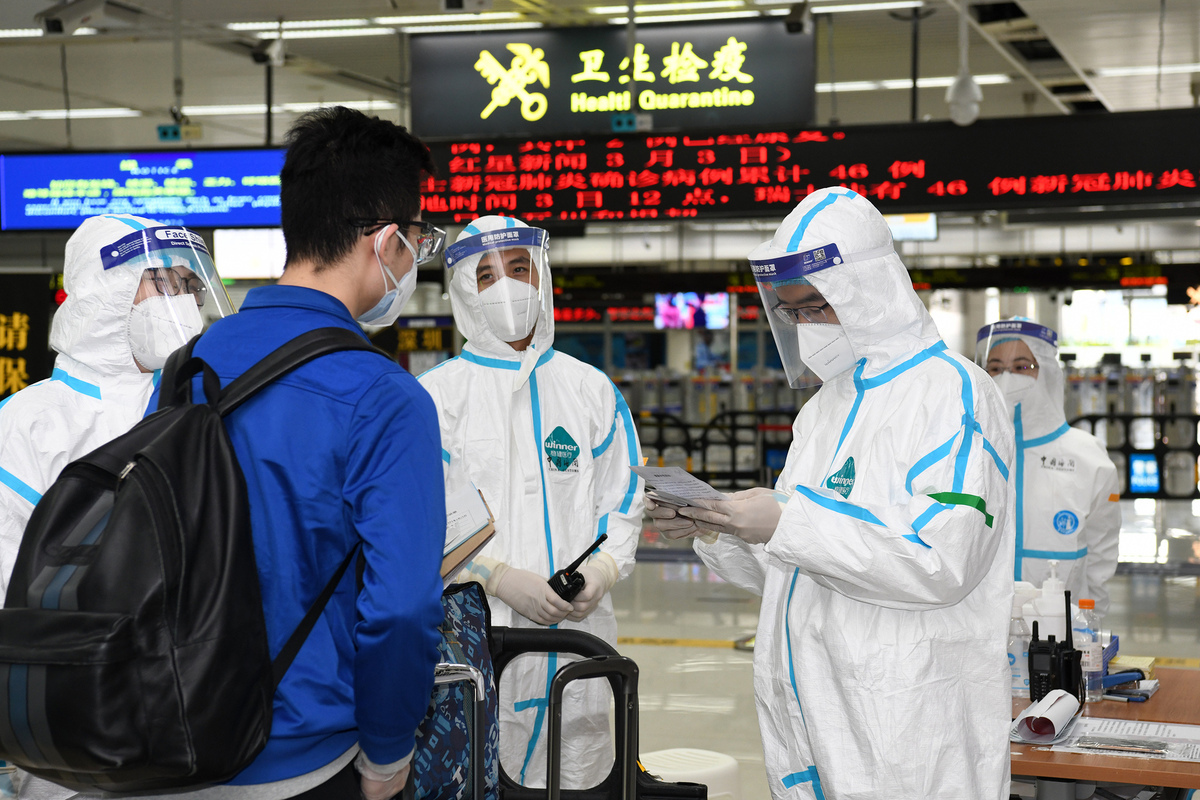COVID-19 tests required for inbound passengers

Customs workers check an inbound passenger's health information card in Shenzhen Bay Port in Shenzhen, South China's Guangdong province, on April 3, 2020. [Photo/Xinhua]
China requires all inbound passengers to provide a negative nucleic acid test result before their flights, its civil aviation regulator said on Tuesday, as part of efforts to curb cross-border spread of COVID-19 amid increased international travel.
According to a notice jointly issued by the Civil Aviation Administration of China, the General Administration of Customs and the Ministry of Foreign Affairs, all passengers flying to China, whether Chinese citizens or overseas travelers, should take a nucleic acid test at medical institutions designated by Chinese embassies no more than five days before making the trip.
As some countries bring their pandemic situation under control, international flights have gradually resumed. A nucleic acid test is the most important method of detecting coronavirus recognized by all countries, Foreign Ministry spokesman Wang Wenbin said at a news conference on Tuesday.
The measure will help promote and guarantee personnel exchanges between China and other countries and facilitate the resumption of work, he added.
Chinese air passengers are required to take photos of and upload the negative nucleic acid test results via an epidemic prevention mini program on China's WeChat instant messaging platform, the notice said.
Foreign travelers should apply for a declaration of health status from the Chinese embassy with a valid written report of a negative test result, it added.
The airlines will check health QR codes or health declarations ahead of departure, and travelers who fail to produce such codes or documents will be denied boarding, it said, adding that passengers who provide false certificates and information will face legal liabilities.
The move came after the civil aviation regulator suspended several international flights recently for at least a week because some passengers on those flights tested positive for the novel coronavirus.
In early June, China eased restrictions on international passenger flights contingent on epidemic risks in the country being under control, highlighting the "reward and circuit breaker mechanism".
The mechanism puts in place thresholds requiring airlines to suspend flights or allowing them to add more flights depending on the number of passengers who test positive for coronavirus within specific time periods.
According to civil aviation news website carnoc.com, China has seen an increase of about 30 inbound flights a week after allowing more overseas carriers to resume flights into the country.
The civil aviation administration, since June 14, has ordered the suspension of six international flights operated by domestic and overseas carriers after the number of passengers that tested positive for coronavirus exceeded the circuit breaker threshold.
Under the mechanism, an airline must suspend operation of a route for one week if more than five of its passengers test positive for coronavirus. If the number exceeds 10, the airline must suspend the route for four weeks.





 play
play